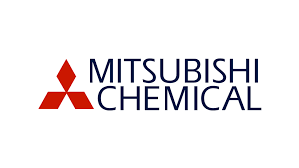Radiochemistry, a fascinating and complex field, delves into the study of radioactive substances and their chemical reactions, properties, and applications. It bridges the gap between chemistry and nuclear physics, contributing significantly to various scientific and practical fields. This 1000-word article provides an in-depth look at radiochemistry, its evolution, applications, and the impact it has on modern science and technology.
Introduction to Radiochemistry
Radiochemistry involves the study of radioactive materials, where isotopes of elements undergo radioactive decay, emitting radiation in the process. It’s a specialized branch of chemistry focused on radioisotopes, which are atoms with an unstable nucleus that change into a more stable form by emitting radiation.
Historical Background and Evolution
The foundation of radiochemistry was laid with the discovery of radioactivity by Henri Becquerel in 1896, followed by the pioneering work of Marie and Pierre Curie. Their discovery of radium and polonium, and subsequent research, opened up a new realm in chemistry. Since then, radiochemistry has grown immensely, with significant developments in nuclear science during the 20th century, especially around the periods of the World Wars.
Basic Concepts of Radioactivity
Radioactivity is a natural and spontaneous process by which the nucleus of an unstable atom loses energy by emitting radiation. There are three main types of radiation:
- Alpha Particles: These are heavy, positively charged particles.
- Beta Particles: These are lighter, either negatively or positively charged particles.
- Gamma Rays: High-energy electromagnetic waves.
Understanding these types of radiation is crucial in radiochemistry for the safe handling and use of radioactive materials.
Applications of Radiochemistry
Radiochemistry has a wide array of applications, many of which are integral to modern society:
1. Medical Applications
Radiochemistry has significantly contributed to the field of medicine, particularly in diagnostics and treatment. Radioactive tracers are used in nuclear medicine to diagnose and monitor various health conditions, including cancer and heart diseases. Radiotherapy, which uses ionizing radiation, is a common treatment for cancer.
2. Energy Production
The use of radiochemistry is crucial in nuclear power generation. Nuclear reactors use controlled nuclear reactions to produce energy. Understanding the chemistry of radioactive materials is essential for the safe and efficient operation of these reactors.
3. Environmental Monitoring
Radiochemistry plays a vital role in environmental monitoring and research. Radioactive isotopes can be used to trace the movement and distribution of contaminants in the environment. They also help in understanding geological and atmospheric processes.
4. Scientific Research
In scientific research, radiochemistry is used in a variety of ways, from studying chemical reactions and processes to aging archaeological finds using radiocarbon dating.
Radiochemistry, a fascinating and complex field of chemistry, involves the study of radioactive substances and their chemical reactions, properties, and behaviors. This 1000-word article delves into the world of radiochemistry, exploring its principles, applications, and the significant role it plays in various industries and research.
Introduction to Radiochemistry
Radiochemistry is a specialized branch of chemistry focused on the study of radioactive materials, including their synthesis, properties, and reactions. It combines aspects of chemistry and nuclear physics, dealing with isotopes that emit radiation – alpha, beta, and gamma rays.
The Fundamentals of Radioactivity
Radioactivity is the process by which unstable atomic nuclei decay, releasing energy in the form of radiation. Discovered by Henri Becquerel and further explored by Marie and Pierre Curie, radioactivity opened up new avenues in scientific research. The study of radioactivity involves understanding different types of radioactive decay, half-lives of isotopes, and their transformation into other elements.
Types of Radioactive Decay
- Alpha Decay: Involves the emission of alpha particles (helium nuclei) from the nucleus.
- Beta Decay: Involves the emission of beta particles (electrons or positrons).
- Gamma Decay: The emission of gamma rays, a form of electromagnetic radiation.
Measurement and Detection of Radioactivity
Detecting and measuring radioactivity is crucial in radiochemistry. Instruments like Geiger-Müller counters, scintillation counters, and gamma spectrometers are used to detect and measure radiation levels. Understanding the behavior and intensity of radiation is essential for applications in medicine, industry, and environmental studies.
Applications of Radiochemistry
Medical Applications
One of the most significant applications of radiochemistry is in nuclear medicine:
- Diagnostic Imaging: Radioactive isotopes are used in diagnostic techniques such as PET (Positron Emission Tomography) scans and SPECT (Single Photon Emission Computed Tomography) scans. These methods allow for detailed imaging of internal bodily processes.
- Radiopharmaceuticals: Radioactive substances are used to treat certain types of cancer and other diseases. Radiotherapy involves targeting cancerous cells with radiation, minimizing damage to surrounding healthy tissue.











